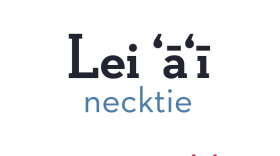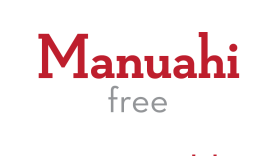-
We all know that waiwai is rich and riches, and we hear it so often. But how do we say poor in Hawaiian? ʻIlihune and that's our Hawaiian word for today. And it means just that, poor, impoverished.
-
ʻOmawawe is how we say microwave oven in Hawaiian. You know that is a new word in our language, but a useful one.
-
You've heard us talk so often about vowels, you've probably wondered if there is a Hawaiian word for vowel. Yes, though it is a borrowed one, woela means vowel. The woela in Hawaiian are a, e, i, o and u.
-
Heʻe is the Hawaiian word for octopus. You've probably heard heʻe in names such as Waiheʻe, a former governor of Hawaiʻi, or in words like wahaheʻe, meaning to lie, literally, slippery mouth.
-
Pōhaku means “stone.” Don't confuse the pōhaku with the little pebbles we call ’ili ’ili - it must be larger than an ’ili ’ili to be a pōhaku.
-
Many Hawaiian words make so much sense that you can put them together yourself to make other words. Hale means house, and lio means horse. So how would you say stable? Hale lio. A stable.
-
Manuahi means free, as in no charge. Not many things are really free, but some of the best things in life are manuahi. Hawaiʻi Public Radio offers this Hawaiian Word of the Day program manuahi.
-
Mea kanu means plant, like that potted one you have in your office or living room. It is a planted thing, a mea kanu. Don't confuse it with that big tree outside, that's a kumu lā’au.
-
The kōlea, or Golden Plover, is an amazing migratory bird that arrives in Hawai’i about August. And stays here through the winter months, leaving in May for the Arctic. The kōlea are here right now, look for them!
-
Huaka’i is Hawaiian for trip, voyage, journey, mission, procession, even a parade. It doesn't have to be a long voyage or flight. A trip to Maui is a huaka’i, just as a trip to Japan is a huaka’i. Next time you plan a trip, call it a huaka’i.
-
Another of those beautiful Oʻahu Hawaiian place names so often mispronounced is Mōʻiliʻili, a residential area near Mānoa. It means pebble lizard.
-
Our Hawaiian word of the day is poelele, a word that ancient Hawaiians had no need for. Poelele means satellite, it's a flying round object.















